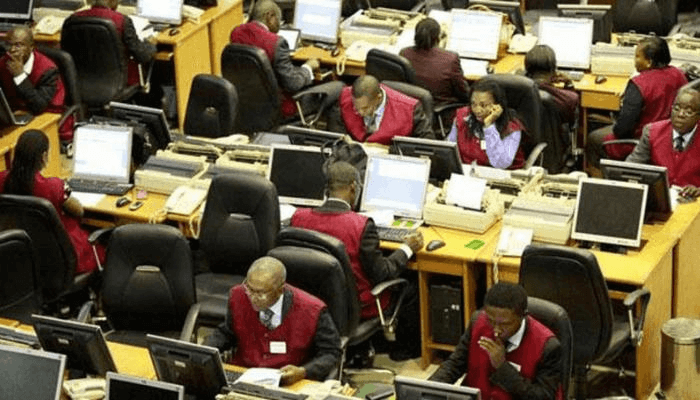With the election period in place, domestic investors in the Nigerian capital market are scooping up positions in stocks, shunning potential risks from the impacts of voter’s choices.
Nigerian Exchange Limited (NGX) All-Share Index (ASI) is up 5.80 per cent as at February 20, 2023, maintaining a bullish run from September 2022.
According to the Domestic and Foreign Portfolio Report of the Nigerian Exchange (NGX), total transactions on the local bourse increased by 34.8 per cent month-on-month to N140.70 billion in December as against N104.38 billion in November, 2022.
Analysing the domestic transactions rose by 39.5 per cent M-o-M to N125.49 billion but domestic investors remain net sellers of equities for the ninth consecutive month.
Likewise, foreign transactions advanced by 5.4 per cent M-o-M to N15.21 billion, although the level of transactions remained significantly below the 2022 full year monthly average on account of lingering FX liquidity constraints, heightened global uncertainties and high global interest rates.
Analysts noted that this is in due part as a result of unimpressive yield in fixed income securities, pushing investors to buy up fundamentally strong stocks with attractive dividend yields.
Historically, the market has typically experienced volatility during election season with some notable years, particularly the 1999 election – which saw change from military rule – and 2015 election – which saw the first incumbent defeat at the polls – experiencing declines pre-election.
Analysts stated that “the positive domestic investor sentiment has been driven mostly by strong earnings releases and dividend payouts announced by companies in the wake of earnings season. However, some have advised cautious trading as the 2023 elections approach but maintained their positive outlook on dividend yields and capital appreciation in bellwether stocks.”
An analyst with Parthian Securities, Azeezat Awonuga, said investors are poised to hunt for gains in the stock market as the fixed income yields have moderated in recent times.
“As we anticipate earnings from the banking sector which comprises about 60 per cent of the volume in the market and also form the bulk of the fundamentals, positive earnings will push investors to plough more funds into the market,” she stated.
Investment research analyst from Investment One Capital Management Limited, Akosile Oluwasanmi, noted that uncertainties around the elections and the cash crunch in the economy could dampen investor sentiment into taking profits but positive corporate earnings could also see investors increasing their positions.
Head of investment research, Parthian Securities, Oluwaseun Dosunmu, said the dominance of domestic investors in the Nigerian equities market is a good development because it shields the market from the impacts of funds outflow from emerging markets and global headwinds.
A stockbroker, Mr. Tunde Oyediran, said, “It is a good thing that domestic interest is building in the market; it is really positive. This is what we have been clamouring for, where the local investors will be the drivers of the market. With a level of activities demonstrated by the domestic participation will bring some sort of credibility and relative stability in the market.”
Analyst at Cowry Asset Management Limited noted that foreign investors have remained on the side lines amid greater uncertainty over Nigeria’s foreign exchange rate outlook despite improved financial performance of quoted corporates.
On insights for the Nigerian Exchange in 2023, chairman of the Association of Securities Dealing Houses of Nigeria (ASHON), Mr Sam Onukwe said, “The continued increase in interest rates will further affect the stock market as investors will turn to higher yields investible instruments, while the Oil and Gas industry will continue to thrive with the expected increase in international oil price.”
On outlook, analyts noted that “in the short to medium term, we expect domestic investors to continue to dominate the market, although election uncertainties and prospects for higher FI yields may constrain buying activities.
“Also, FPIs who have exhibited a lacklustre interest in domestic equities are likely to remain on the sidelines due to upcoming elections, sustained FX liquidity challenges, and tightening global financing conditions.”





